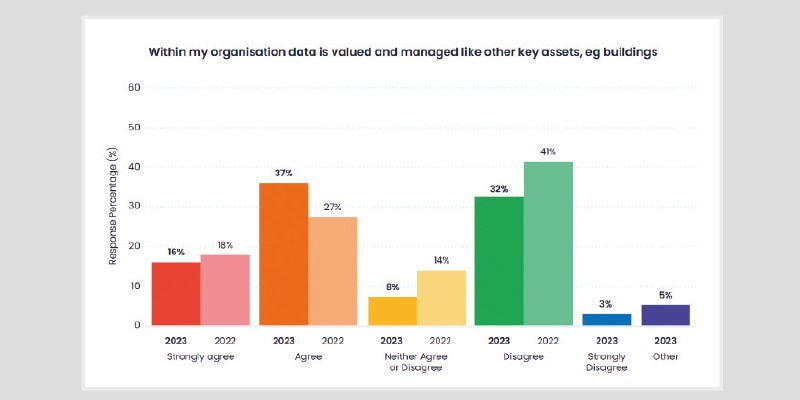The second part of IntoZetta’s annual ‘Data in Housing’ review features a deeper dive into the challenges faced by housing providers across the UK. If you missed the first part, please see the May 2023 edition of Housing Technology. Part two begins with the ‘million-dollar question’ – what are housing providers’ biggest data challenges?
The biggest data challenge faced by social housing providers is…
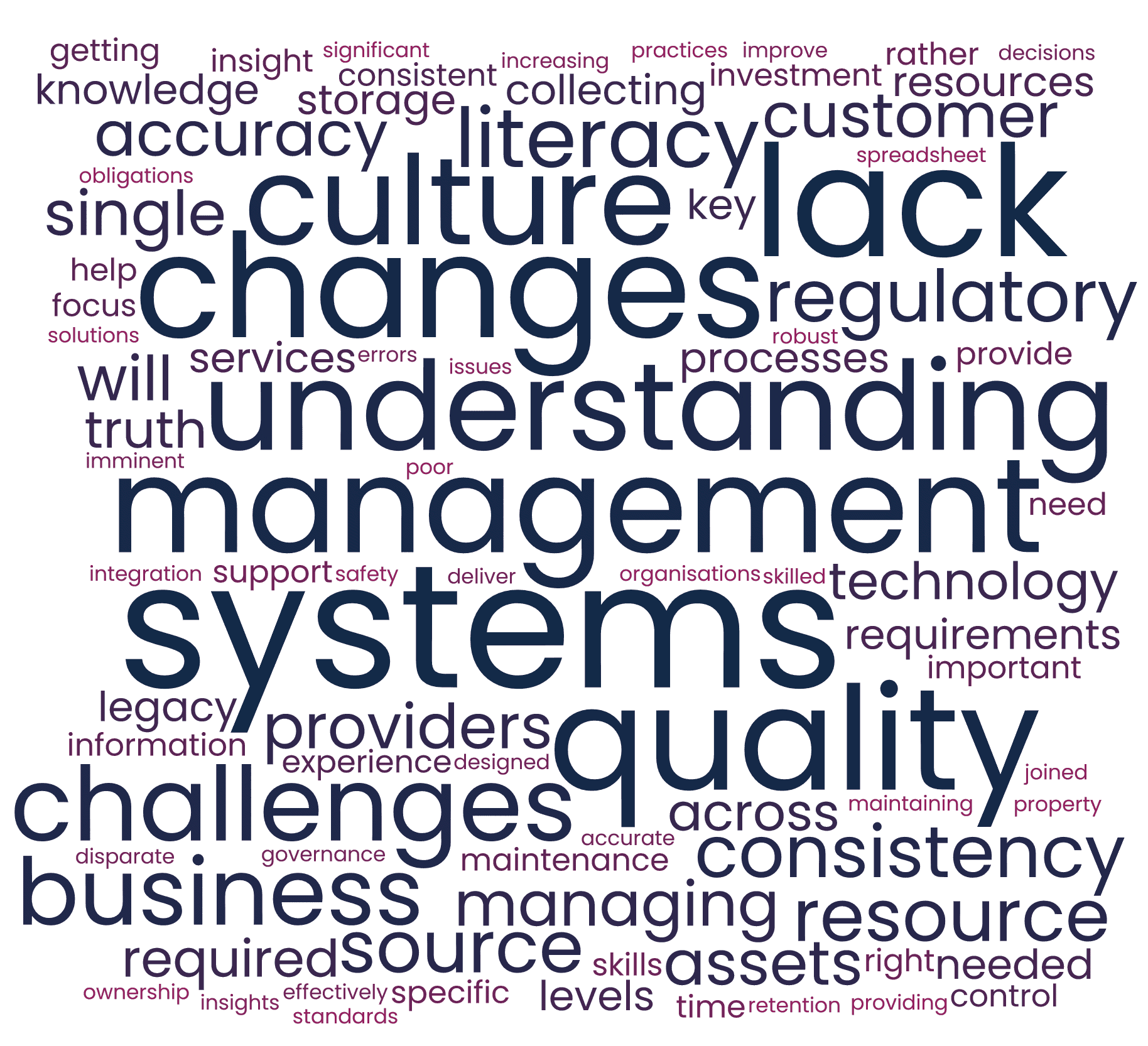
This question always throws up some interesting responses but there are usually some clear themes and this year is no exception. As the graphic shows, changes, systems, quality and understanding are the candidates for the biggest data challenge in our sector; I’m sure those will resonate with most readers.
Here are some quotes from respondents on what they consider to be the biggest data challenge:
- “The capture and storage of additional data needed for changes to regulatory reporting.”
- “The sheer number of systems in use.”
- “Data quality – improving it, maintaining it and retaining only what’s necessary.”
- “Data literacy at all levels and a subsequent lack of evidence-based decision-making.”
The last of those quotes particularly struck a chord with me. As the sector progresses along its journey to becoming more data-driven, organisations must consider how to bring colleagues along on the journey.
Whether that’s through specific training for those with day-to-day involvement in data activities or through simple and clear communications to all staff on the plan, the value of it and how they can play their part, if we don’t get the human side of data management right, we’re destined to fail.
Within my organisation, data is valued and managed like other key assets
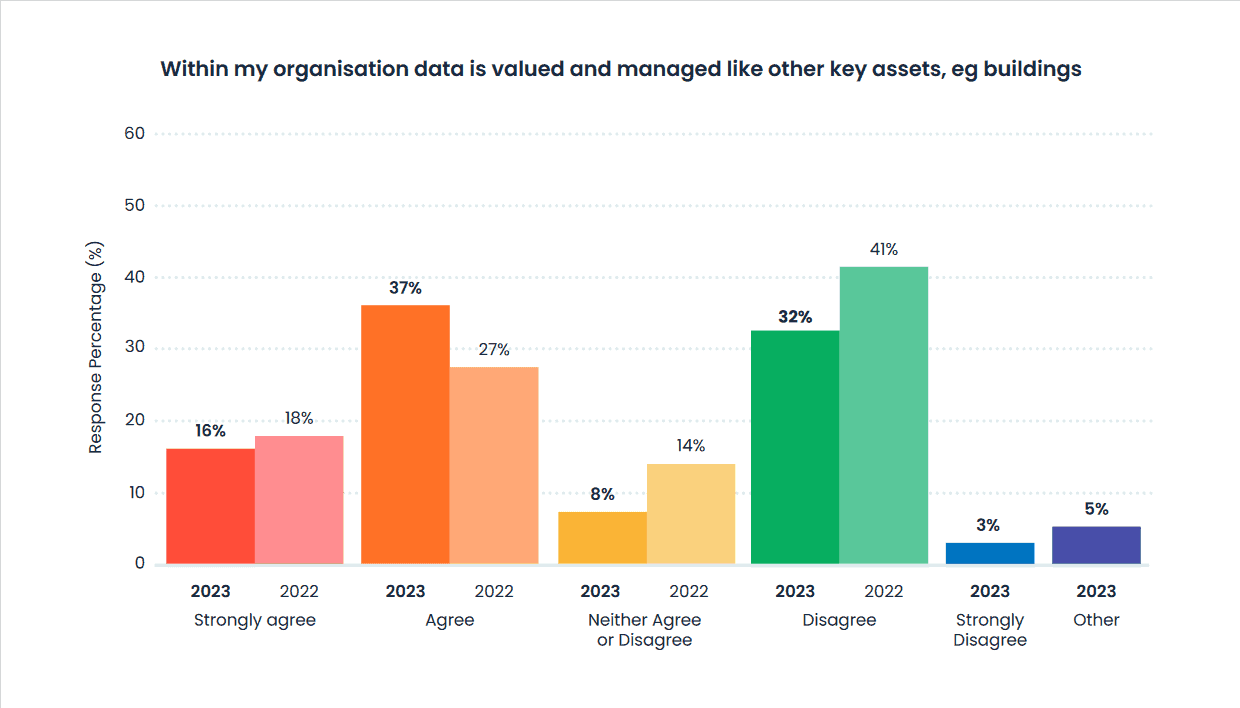
This was probably the first question this year with a clear improvement in the favourable responses, which highlights the changing attitudes towards data in our sector.
For most organisations we speak to, data is now a board-level issue, and not only that, but a high priority one. Recognising data as an asset as valuable as the bricks-and-mortar is the first step in driving the cultural change highlighted as a significant challenge in the first question.
And if you’re one of the 35 per cent of housing providers who haven’t made that step, perhaps ask yourself why not.
Now to some new questions for 2023. From feedback last year, many people we spoke to thought that recognising there was a problem with data was only half of the story; being prepared and equipped to deal with it was something else entirely.
Improved data management will require cultural change within my organisation
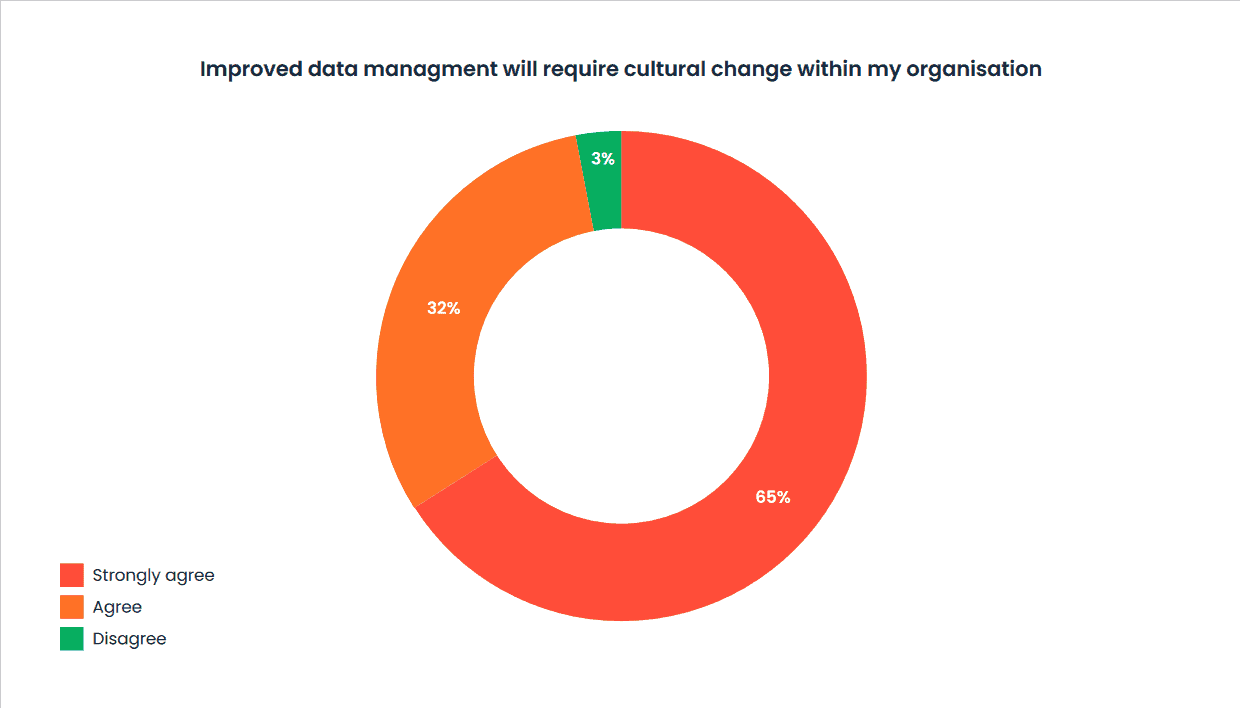
An emphatic response here; 97 per cent of respondents believe that cultural change is needed to improve data management. I find this shocking yet unsurprising.
The debate here then becomes how (not if) housing providers go about delivering that change. Which partners can help shape the future of data management and provide the training needed to get people into the right headspace around data?
I’d love to think that next year, we’ll see a big turning of the dial and improvement in the responses to this question – over to you…
We next look at two questions which examine the knowledge, tools and skills needed to manage data.
My organisation has the technology needed to manage and improve its data assets
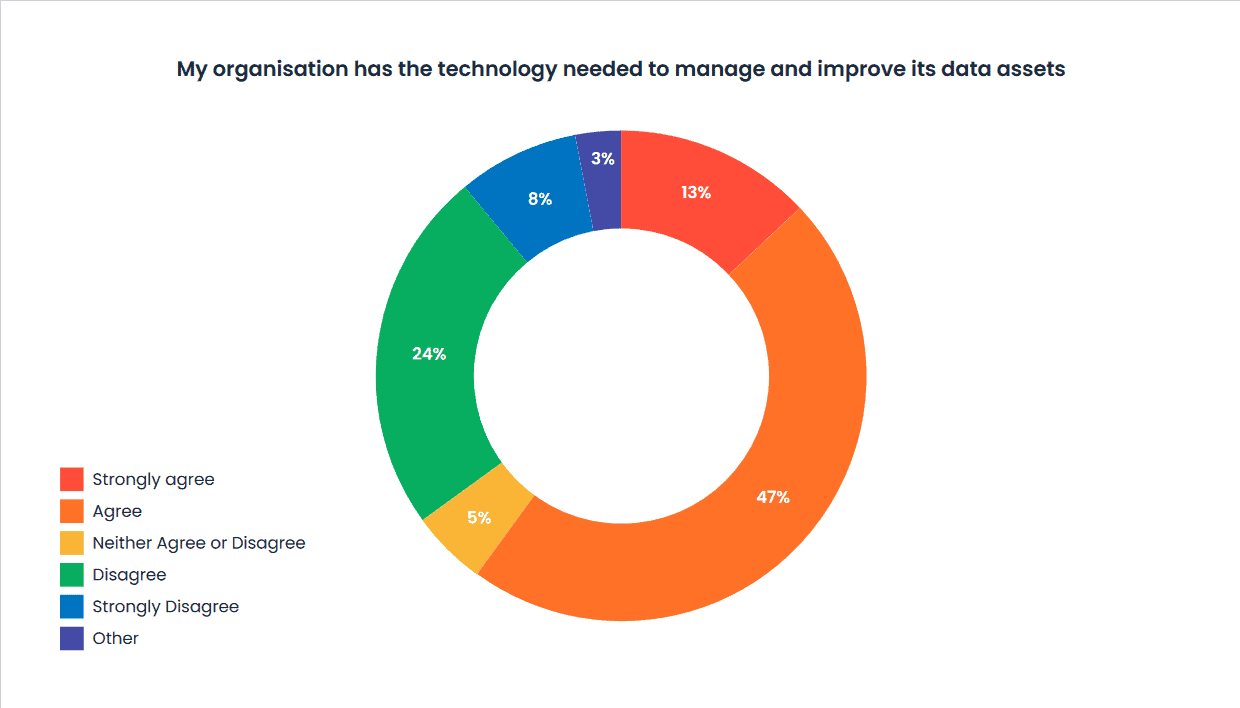
Better news here. A majority (albeit small) of respondents feel that the software and systems exist for them to do a better job around data.
My organisation has the skills and knowledge needed to manage and improve its data assets
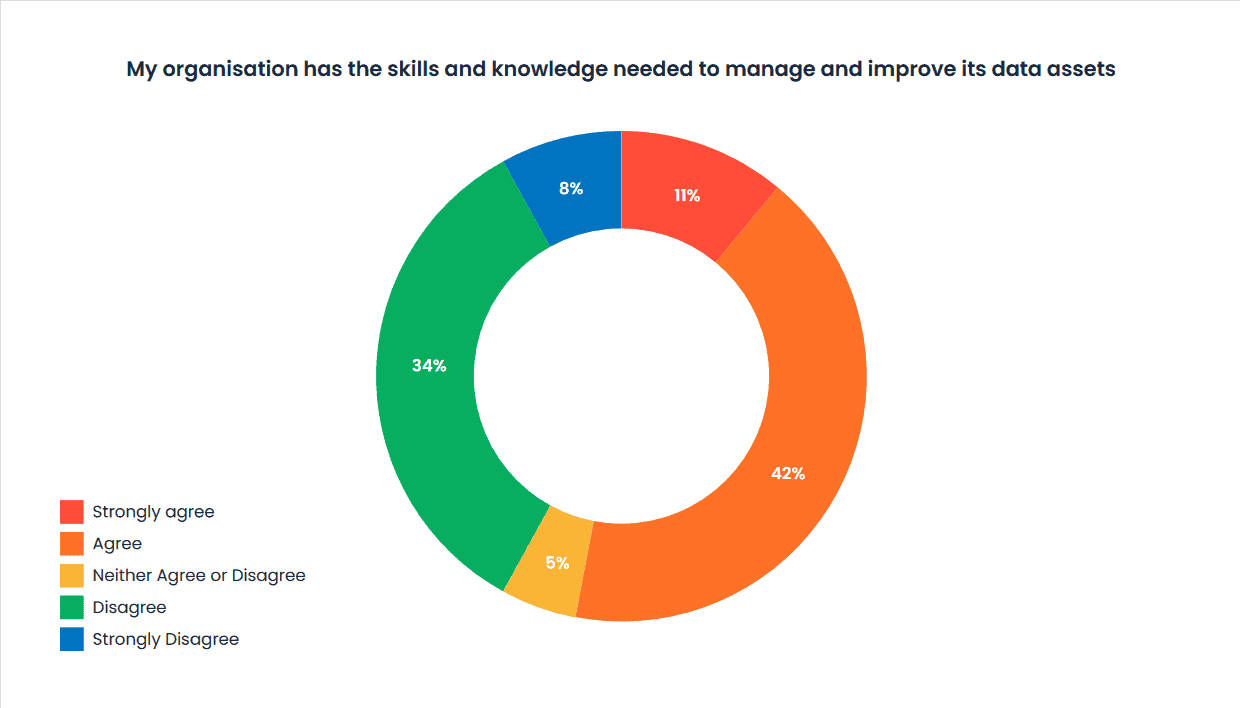
A similar story here, with again a small majority feeling that the skills exist to take data management to the next level.
What conclusions can we draw? Looking at the individual responses, we can split them broadly into two groups.
- The first group has the necessary technologies and skills to transform data management; this really brings the cultural point into focus. If you think you’re in this group and that it’s only cultural issues holding you back, what are your SLT doing about it and how can you help?
- The second group has neither the skills, technologies nor culture to bring improvement to data management. This should be a wake-up call to the leadership of those organisations.
Over the past five years, we’ve seen data emerge as a board-level issue within most of the housing providers we talk to; regulations around data are tightening, reporting burdens are heavier and scrutiny is increasing, to highlight just a few areas.
If you are one of the roughly 45 per cent of housing providers in this bracket, I would strongly urge you to create an action plan to address this critical gap in your operating model. The answers are definitely out there but first you need to ask the right questions.
Join us in the September edition of Housing Technology when we’ll be covering the third part of our findings from our ‘Data in Housing Survey 2023’.
And as always, if you’d like to take part in our 2024 survey or share your experience of working with data in housing, please contact us at participate@housingdatasurvey.com.
David Bamford is the delivery director at IntoZetta.

